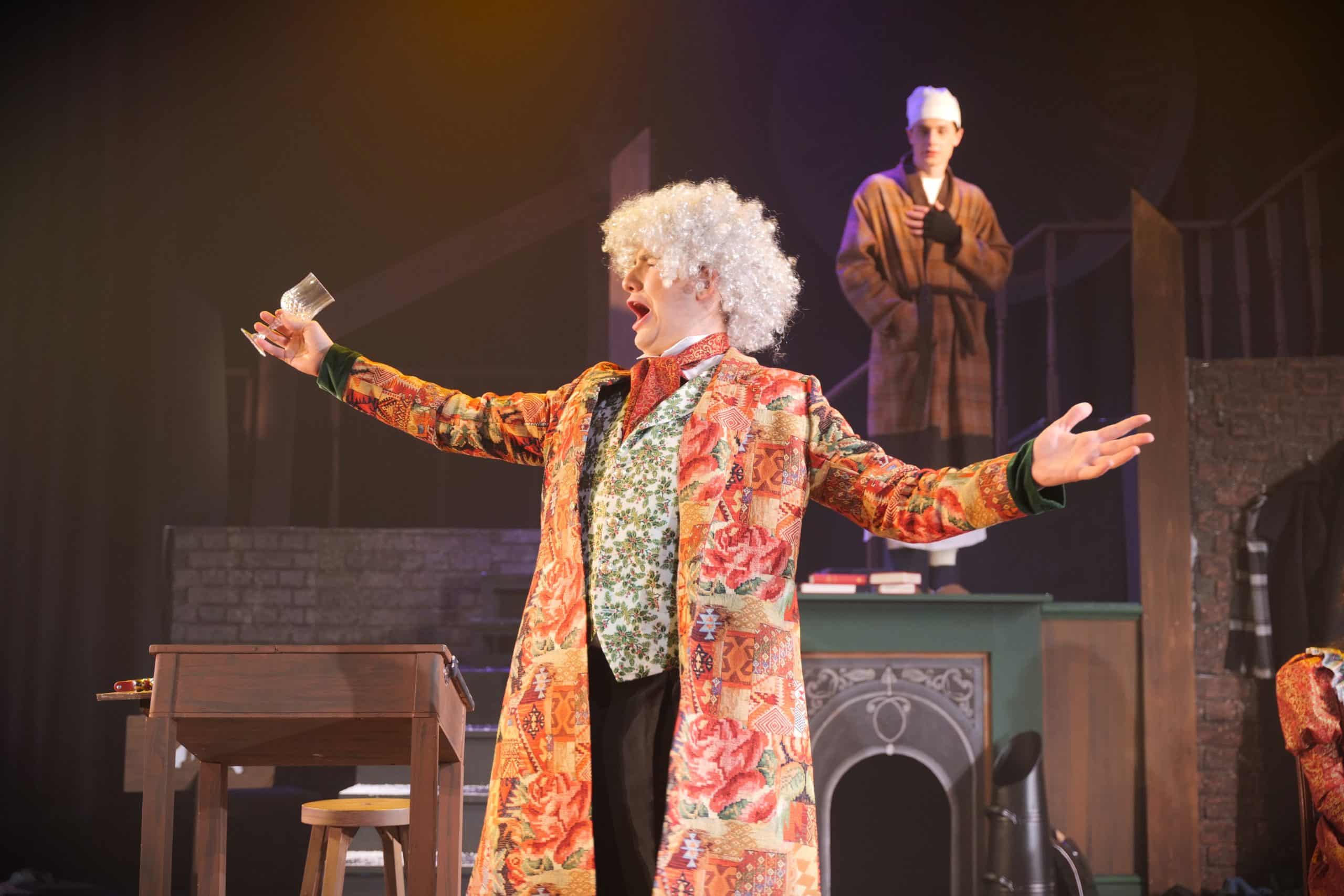A Christmas Carol: Review
In 1830, just over ten years before Dickens published A Christmas Carol, the journalist and critic William Hazlitt died in near obscurity, his career ruined by the love affair with his landlady’s daughter which had broken up his marriage in the 1820s.
At the height of his career, Hazlitt’s theatre reviews were famous and he was particularly known for his review of Keene’s Shylock. The performance and review worked together to boost the career of both actor and critic but also to revive the idea of what a Shakespearean performance could be. Hazlitt praised above all the quality of gusto, the ability to bring the force of life to art, whether it be in painting or on the stage.
If any story ever embodied that energy and sense of fullness, it is Dickens’ A Christmas Carol. The descriptions of food and drink are fulsome, replete, overflowing with detail and Scrooge himself fits his past, present and possible future all into one night. He is not just one person but several as the story reveals itself.
Cory Pulman Jones’ sensitive production of the stage version succeeds in capturing all this sense of plenty, and energy. Whether it is the spirit of Christmas Present wheeling a great barrow of produce onto the stage, Stella G elegantly channelling supermodel and Ocado delivery driver, or the barely contained excitement of Scrooge’s nephew Fred, the scene brims over with gusto.
Guy A’s Scrooge is a fully realised creation. So repressed that he can barely growl his insults and slights as the play begins, we see him reacting with increasing remorse and even horror as the consequences of his actions are revealed to him. In his final incarnation as a redeemed man, he is comic, but not ridiculous, all self-consciousness stripped from him as he shares his new-found lust for life. Guy’s use of both body and voice is a wonder and yet he leaves plenty of space on the stage for others to command our attention as well.
A very strong supporting cast help to vary the mood from festive to deeply sinister. George G’s spirit is a chilling creation, a Victorian undertaker who shows without needing to tell. Charlotte B’s Jacob Marley is an eerie figure, unsettling us, as she is familiar enough to Scrooge to occupy a chair as she talks to him but also the bringer of a message which he definitely does not want to hear. Her laboured movement across the stage as she drags her chains is painful in the extreme.
The cast sing and play their instruments beautifully, facilitating a variation of mood which carries the audience through the run-time without any drop in the tempo. As the end approached, the actors occupied the front of the stage, the lights grew brighter, the costumes more vivid, the smiles clearer and that sense of fullness, of life, of gusto reached us in the audience, blessed, every one, by this wonderful production.
By Mr Alex Welby
